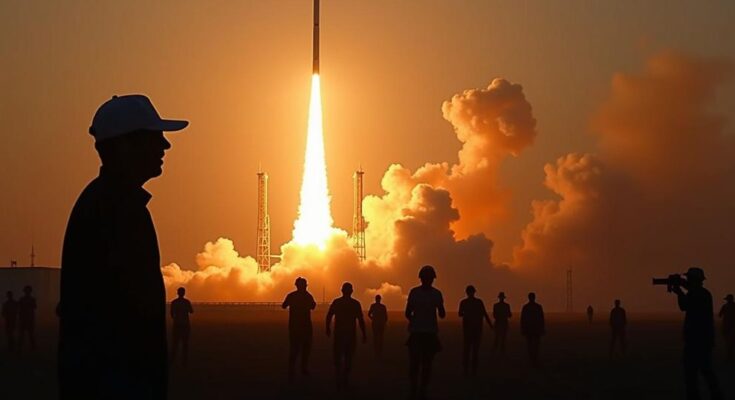Israel and the United States have condemned Iran for launching nearly 200 ballistic missiles at Israel, citing the strikes as retaliation for the killings of Hamas and Hezbollah officials. Israeli leaders promise consequences, while U.S. officials warn of severe repercussions for Iran’s actions. The conflict has further intensified amid ongoing hostilities involving Israel, Hamas, and Hezbollah, leading to significant humanitarian crises.
Israel and the United States have issued stern warnings regarding potential repercussions for Iran following its missile attack involving nearly 200 ballistic missiles directed at Israeli territory. Iranian officials characterized the strikes as an act of retribution in response to the recent killings of prominent Hamas and Hezbollah figures. Israeli Prime Minister Benjamin Netanyahu proclaimed, “This evening, Iran made a big mistake — and it will pay for it.” In parallel, Jake Sullivan, the national security adviser at the White House, emphasized that Iran would endure “severe consequences” for its actions on Tuesday, which were in the wake of Israel’s initiation of localized ground operations aimed at dislodging Hezbollah militants in southern Lebanon. The situation remains critical as Israel has continued its military operations in southern Lebanon, a region increasingly embroiled in conflict due to the ongoing Israel-Gaza war. The escalation of Israel’s military engagements in Lebanon has resulted in significant humanitarian distress within the state, and the wider region is experiencing increased tension as a result of these developments. This renewed military activity follows unprecedented assaults by Hamas on October 7, which prompted a comprehensive military response from Israel, further complicating the ongoing crisis in the Gaza Strip, where conditions are dire for many civilians.
The ongoing conflict involving Israel, Hamas, and Hezbollah encompasses deep-seated historical grievances that date back prior to the establishment of Israel in 1948. The latest escalation traces its roots to the severe violence that erupted following Hamas’s unprecedented cross-border attack on Israel which resulted in substantial casualties and hostage situations. In response, Israel has engaged in extensive military operations in the Gaza Strip and southern Lebanon, leading to widespread humanitarian crises. Iran’s involvement in this conflict, particularly its support for groups such as Hamas and Hezbollah, complicates the situation further, as both Israel and the United States are on high alert for potential Iranian retaliation or escalation following the missile attacks. As such, the tensions in the area have broader implications for the stability of the Middle East.
The recent missile attacks by Iran against Israel mark a significant escalation in the ongoing conflict in the region. With both Israel and the United States assuring consequences for Iran’s actions, the situation remains volatile. The humanitarian crisis resulting from the Israel-Gaza war continues to be exacerbated by the military operations in southern Lebanon. As the geopolitical landscape shifts, the potential for further escalation looms large, indicating a need for careful diplomatic engagement to prevent a wider conflagration.
Original Source: www.washingtonpost.com




